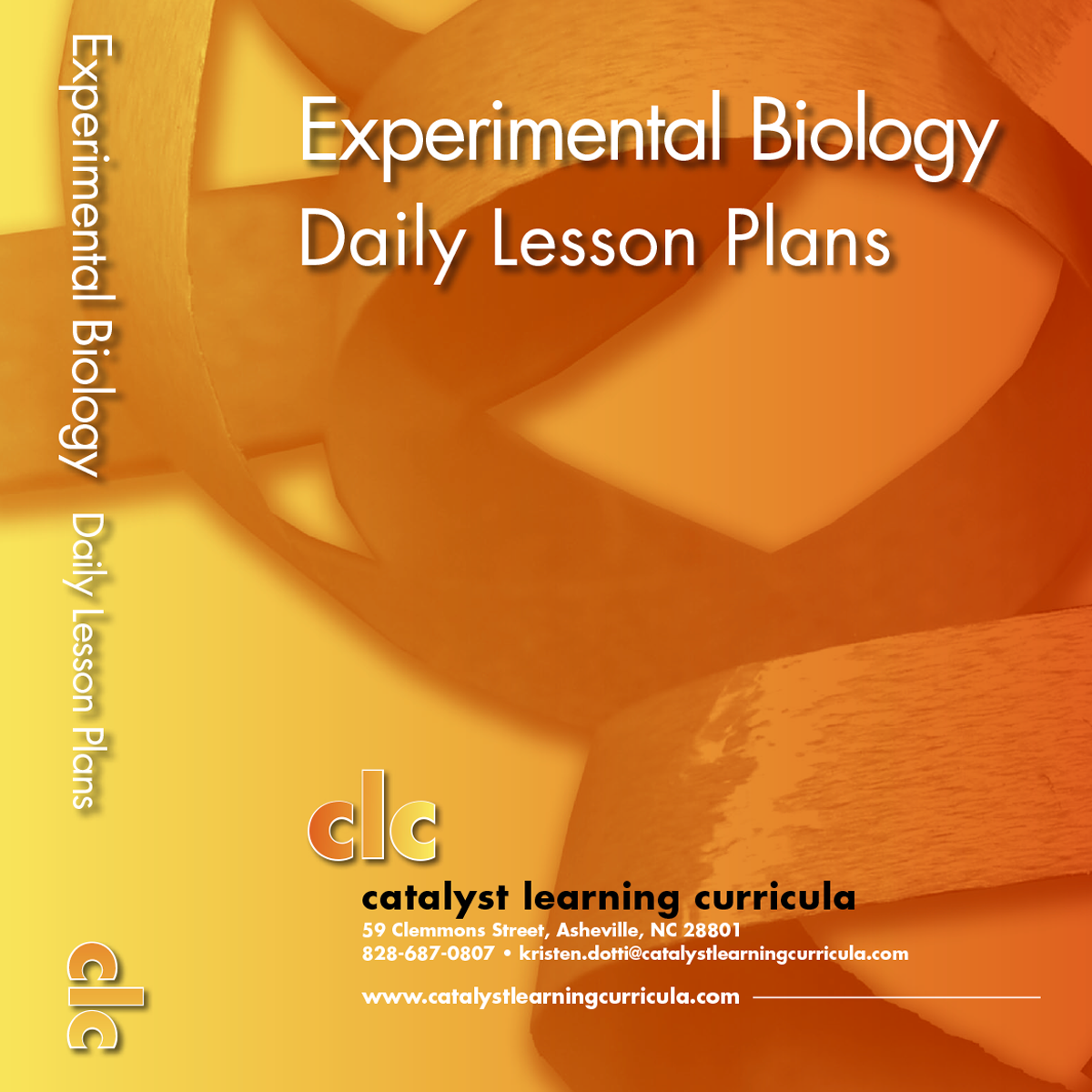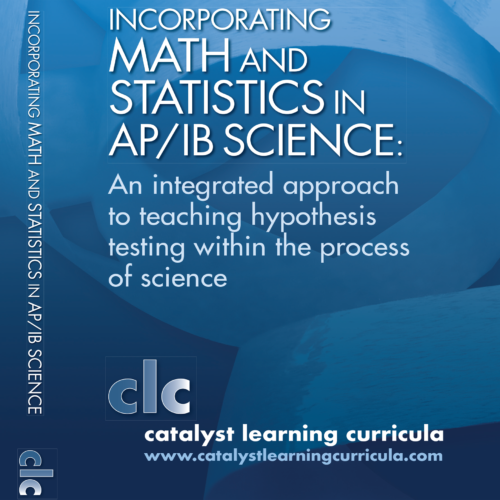Description
With a backbone of 32-36 student-designed experiments, this full year curriculum uses project-based learning to cover the general biology or honors biology course requirements of all 50 states. The primary objective of the course is to teach scientific thinking in a manner that is relevant and effective. This curriculum also covers the first year of IB Biology with preparation and practice of the IA through student-designed research.
Each unit begins with a demonstration designed to engage students and make them curious about the topic at hand. Engagement is followed by exploration, in which students begin to gather general information about a process, system or circumstance using observation skills and creating hypotheses to explain what they perceive. After sharing their observations and hypotheses, students then work in lab groups to design experiments that can be used to determine what factors are affecting the topic they are studying. Students use a peer-review process to share methods and procedures, then they conduct their peer-edited experiment. Data analysis and conclusions are shared using lab reports, brochures or audio-visual presentations after each experiment, so that all of the students learn from the experiences of their peers.
Although biology is taught in every high school throughout the United States, there has never been one curriculum or reference that teachers can turn to to cover the material. Instead, teachers must keep reinventing the wheel. This curriculum was written not only to provide a path by which teachers can meet their state’s standards, but also to give educators superior techniques that motivate their students, engage them in active learning and press them into higher-order thinking, analysis and inquiry. Daily lesson plans with objectives, materials, procedures, student handouts, grading rubrics and homework assignments help relieve the pressures of day to day preparation. Study skills, cooperative learning techniques and assessment tips are provided to help the teacher transition smoothly into teaching in a style in which the student is at the center of the learning experience.
No matter what schedule your school follows, the activities in the 172 lesson plans in this curriculum can easily be moved around and sequenced to work in the time available in any given week. Activities are varied and include model building, games, laboratory experimentation, group simulations of processes, reenactments, data analysis, research projects, debates, presentations and more—all of which have been proven to stimulate students’ appetites for learning and inspire quests for more knowledge. Study skills are incorporated into each day’s lesson plan, so that the teacher can cover the course content while simultaneously preparing the students for college success. Graphing and data analysis are integral parts of each unit and help students acquire the mathematical skills required for science. This curriculum is an ideal course in scientific thinking and reasoning for students who may one day take an Advanced Placement science course or for students who strive to become a scientifically literate member of our society.
If you are looking for ways to demand more of your students, refine formative assessment or simply want to freshen-up your methods, consider attending the Critical Thinking Activities session on genetics, ecology, cell biology, evolution or anatomy and physiology. Check it out what is offered this year on the Summer Workshops page.


